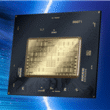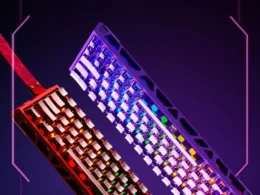SK Hynix Acquires Intel’s Dalian Facility: A Complete Transition
Summary:
- SK Hynix has officially renamed Intel’s Fab 68 in Dalian, marking a significant shift in the semiconductor landscape.
- The acquisition solidifies SK Hynix’s position in the flash memory market as Intel exits this sector.
- Recent U.S. regulatory changes complicate future expansions for SK Hynix in China.
Recently, SK Hynix announced the successful completion of its name change procedures for Intel’s Fab 68 facility in Dalian, China. The factory, formerly known as "Intel Semiconductor Storage Technology (Dalian) Co., Ltd.," is now officially "SK Hynix Semiconductor Storage Technology (Dalian) Co., Ltd." This marks a definitive end to Intel’s presence in the flash memory market, as the company has fully transitioned away from this sector.
A Major Milestone in SK Hynix’s Growth
In a previous deal, SK Hynix acquired Intel’s flash memory business for a staggering $9 billion in 2020, which included Intel’s only wafer fab in China. The transformation of Fab 68 symbolizes not just a name change but also the company’s commitment to delivering advanced semiconductor solutions.
The acquisition was not just a straightforward business decision; it represents SK Hynix’s strategic objectives to broaden its market reach and enhance its technological capabilities. Recently, the factory has continued to produce 192-layer flash memory, a technology that originated from Intel and is utilized in various Solidigm QLC SSDs.
Regulatory Hurdles Ahead
In an unexpected turn of events, the U.S. Department of Commerce revoked a key license that allowed semiconductor companies like SK Hynix and Samsung to export equipment to China without requiring individual approvals. This policy, initially set to expire in 2024, has been abolished and is set to take effect in October.
The Fab 68 facility will be significantly affected, as the revocation means that while existing equipment can still receive maintenance or support, the difficulties associated with expanding capacity and upgrading to advanced technologies, such as 238-layer and 321-layer flash memory, will see a dramatic increase. This regulatory shift introduces challenges that SK Hynix may not have anticipated during the acquisition process.
Strategic Response from SK Hynix
In light of these developments, SK Hynix has issued a brief statement indicating its commitment to maintaining close communication with both the South Korean and U.S. governments. The company aims to take all necessary measures to alleviate the impacts of these regulatory changes on its operations.
This proactive approach illustrates SK Hynix’s adaptability and readiness to navigate complex geopolitical landscapes that can influence the semiconductor industry.
Conclusion
The renaming of Intel’s Dalian facility to SK Hynix reinforces the shift in global semiconductor dynamics, as more companies take strategic steps to adapt to regulatory landscapes and market demands. With Intel now fully withdrawn from the flash memory segment, SK Hynix is well-positioned to take advantage of this evolving landscape, though not without facing significant challenges ahead.
As the semiconductor industry continues to grow and change, the implications of such acquisitions and regulatory decisions will be closely monitored by analysts and industry leaders alike. The future of SK Hynix and its endeavors at Fab 68 will undoubtedly play a crucial role in shaping the semiconductor landscape in the years to come.







